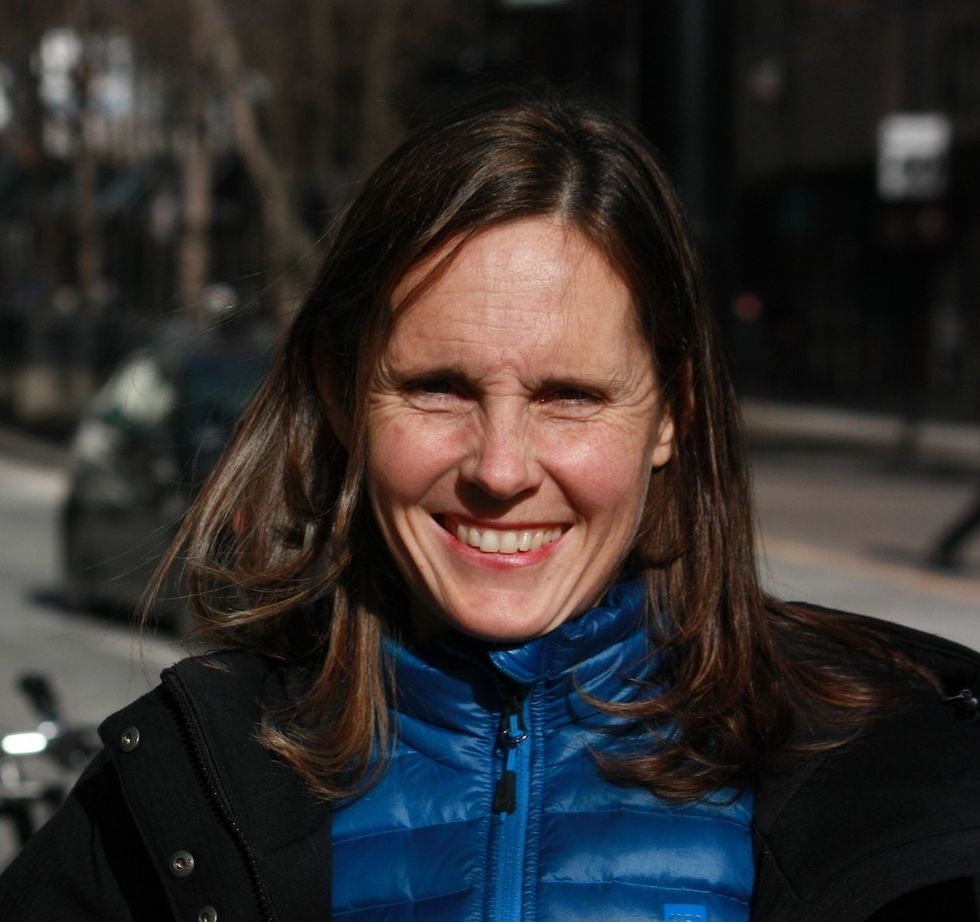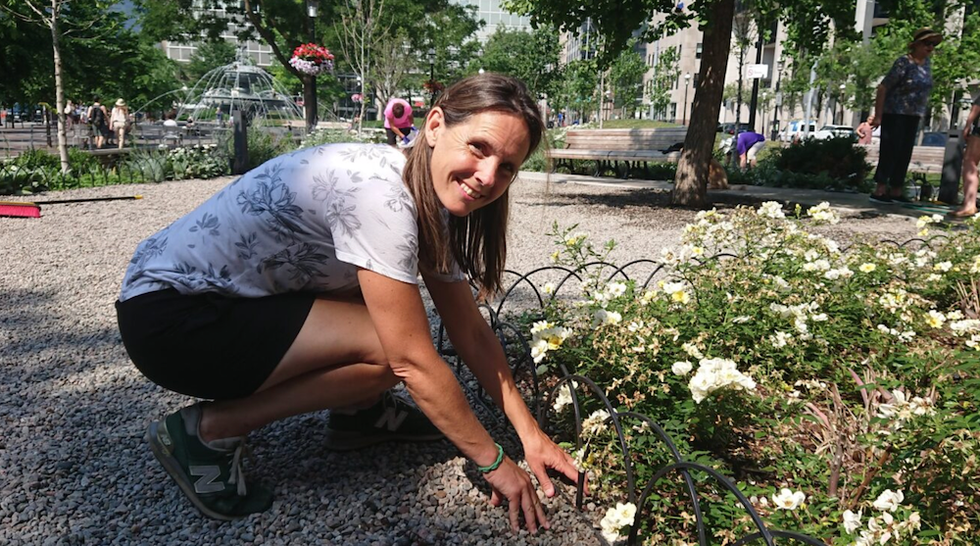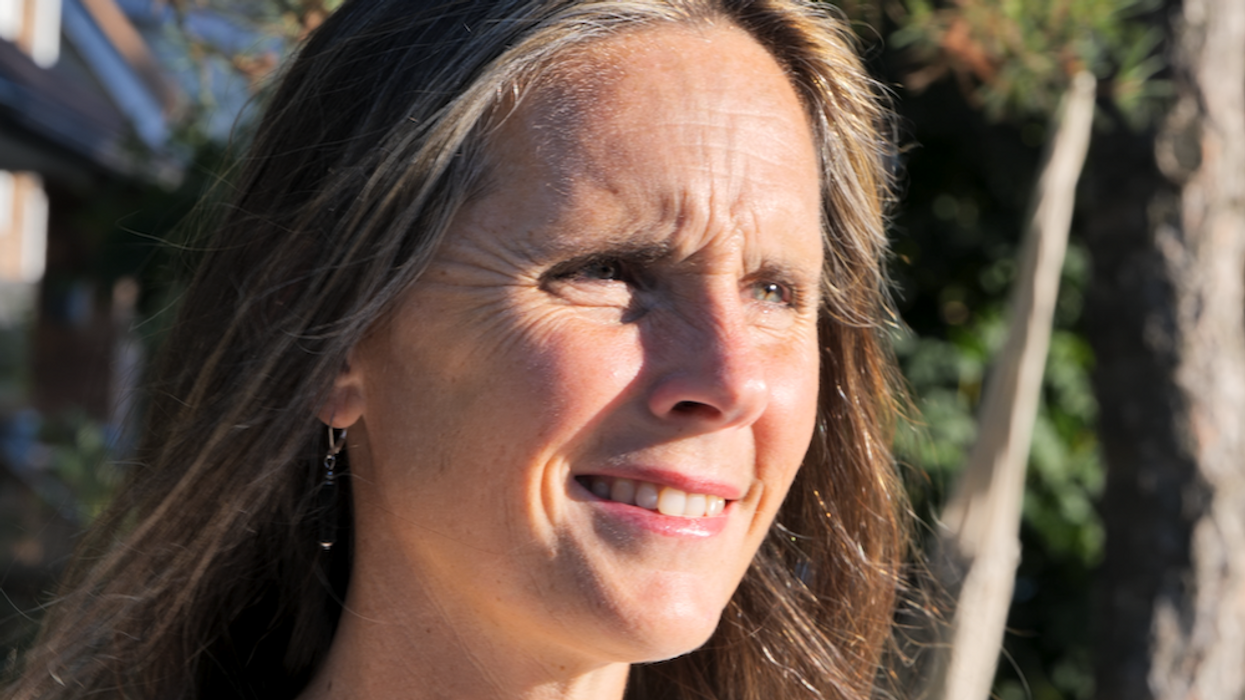A lifelong Torontonian, Sarah Climenhaga has quietly, but effectively, become a notable force on the upcoming mayoral election docket. On this run for office -- her second for mayor and third overall, following an attempt at the federal Green Party seat in 2019 -- she has brought forth a vision for a city where the economy and environment can thrive in tandem.
Long a champion for Toronto’s greenspaces, she’s been an active proponent in a number of local grassroots initiatives for children, transit, and pedestrian safety, and aims to bring a collaborative approach between City Hall and the residents it serves with her Power to the People platform.

When it comes to the issue of housing, Climenhaga points to the lack of it as the root for nearly everything that ails Toronto, from addiction, to homeless encampments, to labour shortages.
- READ: Toronto Mayoral Candidate Chloe Brown on Getting Inclusive Housing Built
- READ: How Incumbent Mayor John Tory Plans to Make Housing Attainable Again
- READ: Mayoral Candidate Gil Penalosa Wants to Transform Toronto with a "Renovation Revolution"
Here, she talks with STOREYS about how she plans to address Toronto’s biggest housing pain points.
Responses have been edited for length and clarity.
On your site, you state one of your mandates is to “Create housing by all available means.” Can you elaborate on this?
The lack of housing for Torontonians, particularly affordable housing, is a complex problem, in large part related to the lack of supply, that doesn't have just one solution.
The city has many different avenues to encourage the creation of housing. The city can legalize multi-tenant housing instead of prohibiting it, and it can use the vacancy tax to incentivize owners to rent or sell vacant housing. When it comes to creating new supply, I believe the city can reduce delays in creation and maintenance of rental housing by removing barriers that the city itself creates. I'd like to eliminate as many of the 200,000 city bylaws as possible in order to speed up progress of both small scale, and, when necessary, large scale creation of rental units.
That doesn't mean we sacrifice quality in housing and neighbourhoods, however. I believe in high standards when it comes to parks and ravines, trees, water quality and garbage, yet I believe such standards do not need to pose a barrier. We just need to make our standards clear, easy to understand and follow, and then allow owners to meet those standards in the way that works for them. That means I want to promote a performance-based approach to innovation rather than the command and control system we have now. I believe the best results come from working together with owners and developers rather than in opposition to them. It's important that residents too are heard, and by eliminating unnecessary bylaws, permits and zoning rules, making the development process entirely transparent, and then including neighbours and potential tenants from the beginning, we can reduce -- or in some cases eliminate -- delays due to resident opposition or political resistance and inertia.
In your essay, “Encampments, Parks, and Housing: Treat the System and Find a Cure”, you say that prevention is key when it comes to tent encampments, and propose several potential solutions, including opening up rental housing in private residences, tiny house communities, and modular housing. What are some of the barriers you believe currently exist to bringing these options to fruition, and how do you plan to address them?
It seems to me that in Toronto we use perfection as the enemy of the good. We need to adopt a trial approach, where we don't just do one pilot, but pilots all over the city to try new types of housing. It will be important to consistently look at practical barriers, that builders and city staff have expertise on, and then devise solutions or ways around each barrier.
It is the will to move forward with new things that I believe is the biggest obstacle to trying different solutions, not the lack of ideas. At this point, doing nothing means we get extremes like encampments on the one hand, or overdevelopment of unaffordable units on the other. Innovation will give us more options for the variety of people who need housing.

What is your stance on the province’s current mandate to streamline the development approvals process at the city level? This has been somewhat controversial, as it would mean removing some of the powers from city councillors and constituents in terms of development. How would you work with the province on mandates such as these?
I am certainly interested in streamlining the development approvals process, yet it must be done with some basic, clear standards and with the support of the community, not by overriding it.
City standards must ensure that new housing is high quality and sustainable, and that it enhances, rather than overloads, existing neighbourhoods. I have every faith that contractors and developers can live up to that challenge without experiencing undue delays once we make our standards clearer, and once we bring residents and developers together in a meaningful way early on in the process. Getting buy-in from residents means no costly delays during the later phases.
What is your stance on the “Strong Mayor” legislation passed down from the province, which has been introduced with the intent to create more housing? Is it the right approach?
I believe strong mayor powers are unnecessary, and the lack of such powers have not been a problem in the past -- the mayor has never lost a vote on housing, so there is no need for a veto to be wielded over councillors.
What is needed to create housing is the political will from the mayor and councillors that would allow them to encourage city staff to change the way they approach the approvals process, give up micromanaging the city when it comes to zoning and permits, and work more closely with residents and developers to get full community support for new housing. The mayor's strength should come from residents themselves, not be imposed on them by vetoing their political representatives.
A lack of funding and enormous backlog are key issues reported about Toronto Community Housing. What measures will you take to alleviate this?
Dealing with funding crunches and delays requires exposing all the data about Toronto Community Housing to the public. I will work to make transparent all the money that is and isn't spent for each cost related to TCH, and to make transparent the timelines that we are falling behind on, and the reasons for such delays. Once that information is publicly available, I will work with Torontonians, including TCH managers and front line workers, and TCH residents to identify obstacles and solutions. When it comes to funding, I would be open to everything from transferring funds from other areas of the city, to saving money through identifying and cutting out expenses that aren't high priority, to asking residents if they would accept tax increases or user fees to pay for repair.
What are your thoughts on rental affordability in the city?
Simply put, rentals are not affordable for not only low income people, but increasingly they are unaffordable for the workforce of Toronto -- for the nurses, the firefighters, the teachers, the artists, and all other community members who are so important to making our city vibrant. We need to increase our renting supply through all available means so that we ensure there are housing options that are affordable for people on every part of the income spectrum.
The Municipal Election is Monday, October 24. Find your polling station here.





















